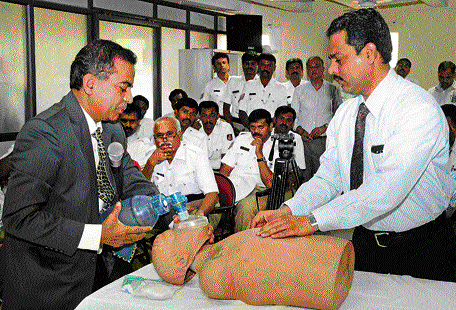
India accounts for the highest number of deaths in road accidents, according to the World Health Organisation.
Most fatalities are due to neurological or spinal failure.
Stating that head injuries have become a local hazard with global significance, BGS Hospitals chief neurosurgeon Dr N K Venkataramana said that 80 per cent of the victims could be saved if the right kind of assistance is provided before reaching hospital.
Addressing an awareness programme on the eve of World Head Injury Awareness Day on March 20, about the seriousness of head injuries caused by accidents, he said people should understand that for brain injuries there was no repair or replacement.
Many accidents, he said, could be avoided if one paid attention while driving or crossing roads. According to statistics, 33 per cent of injuries reported are head injuries with 22 per cent of them resulting in deaths before the victim reaches hospital, while 68 per cent die post hospitalisation.
On an average, 8,000 to 9,000 accidents are reported each year with 800 to 1,000 deaths thereafter.
Additional Commissioner of Police (Traffic) B Dayananda spoke of the need to inculcate safe driving practices by using seatbelts, wearing helmets and avoiding drunken driving.
The police are first to reach an accident spot, so these little and important measures would help them save lives, he said. He urged people not to be worried being questioned by police while assisting an accident victim. In 2013, according to Dayananda, 4.93 lakh people were fined for driving without helmets. In the current year, till date, over 1.5 lakh people have been penalised.
When accident occurs
Do:
* Shift the person to a safe place.
* Check airway, breathing and circulation.
* Call for an ambulance.
* Till head injury is ruled out, continuous monitoring is mandatory.
Don’t:
*Handle the victim alone.
* Pour water in the mouth or face as this may result in respiratory failure.
* Shift the victim unassisted, especially if spinal injury is suspected.